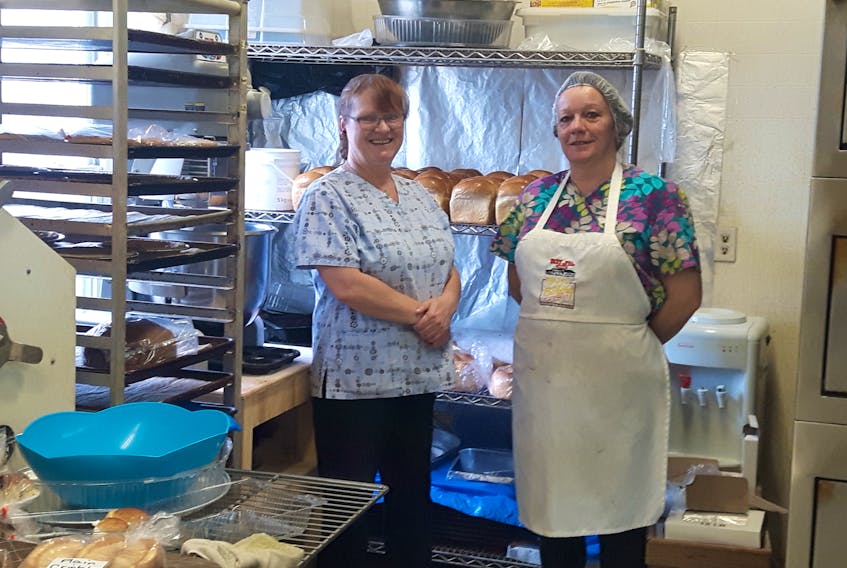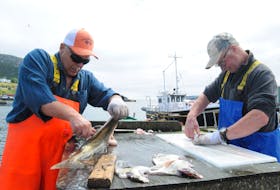What can’t you create with flour?
There’s play dough, gravy, bread – and if you’re on Bell Island, there’s jobs.
A bakery near the long-shuttered iron ore mines is a symbol of hope for the small, isolated community of a few thousand people.
Before the mines closed in 1966, there were roughly 15,000 people living on the island. With the closure, the population plummeted, and so did the number of jobs.
According to the Bell Island Community Development Co-operative Society, the first full-time jobs on the island after the closure of the mines were created because of the Rolling Pin Bakery.
The co-op was formed in 1984, and within five years it had opened the bakery.
“Things started to look up when I saw a co-op starting, and the first four permanent jobs to be on Bell Island since the mines closed,” said Pat Rose, past president of the co-op board, and former manager.
“It gave me a bit of a boost that we could do something on our own, in our community, to keep ourselves alive.”
Today it’s the only bakery on Bell Island, and it’s owned by the several hundred community co-operative shareholders. It employs 12 people throughout the year, some part-time, some seasonal and some full-time.
“Our whole point is to create any type of employment in the community,” said Rose.
“As a small community, we have to support our own, and by supporting our own we create our own employment and create our own destiny.”
This Tuesday marks 30 years of its much-loved bread rolls and apple flips. A celebration to mark the occasion is planned for today.
Current president Jennifer Stone credits hard-working employees and a supportive community for the bakery’s longevity in the community, even while the population continues to decline.
Still, success hasn’t been a piece of cake.
“As with most small businesses, it’s very difficult, especially with the big box stores coming into play,” said Rose.
“We did have a number of instances where our power was ready to be cut off, and I’d get a call from Newfoundland Power.”
Rose said during one of those trying times, a man in the community – a former miner – wrote the co-op a cheque for $1,000 to ensure the bakery could pay the power bill, and remain open.
The importance of the bakery to the community is more than symbolic.
Rose said there’s been times over the years when the Tickle was blocked with ice, and residents couldn’t get off the island.
“And we would be the only source of baked products. Throughout the years, we’ve been the only source of bread and baked goods for a couple weeks on the island.”
The community support has paid off.
Today the co-op has also helped create a seniors’ residence on the island, which the co-op governs. And just this year the co-op started a canteen service at St. Michael’s Regional High School to provide students with nutritious meals.
Even the bakery has expanded. In addition to baked goods, it now provides breakfast and lunch service, and displays and sells the work of 13 local artisans.
“Right now, Bell Island is in a decline, and a large part of rural Newfoundland is the same – everyone is moving to the city instead of staying in the small communities, so we’re just trying to build up the people that are there who are trying to make ends meet,” said Stone.
“If they have a crafting business that we can help them build, that’s just another way that we can keep the community going.
“When you spend local, you know you’re helping more than just the person that you’re buying from – you’re keeping your community going.”
Twitter: @juanitamercer_
RELATED:









